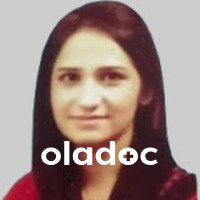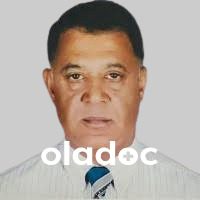Top Fertility Consultants Under Rs. 1500
View allClinic Details
Book Appointment
Clinic details
Services
(View all)- Cryopreservation
- In-Vitro Fertilization
- Intra Cytoplasmic Sperm Injection
- Intra Uterine Insemination
- Pre-implantatation genetic screening (PGS)
- Pre-implantation genetic diagnosis (PGD)
- Preimplanatation Genetic Diagnosis/Screening
Experience
IVF at LIFE Fertility Center has over 33 years of experience in his field.
About IVF at LIFE Fertility Center
LIFE was established in 1984 by Prof. Dr. Rashid Latif, a mere six years after the birth of Louise Brown; the first test tube baby of the world. We take pride in having delivered the first test tube baby of Pakistan. LIFE is an ever-renewing fertility center, constantly introducing new state of the art technology, adjusting rapidly to changes and challenges in the field while consistently enduring high success rates. Our patients come first; recognizing and identifying their specific conditions and treating them accordingly while providing support every step of the way. We seek to deliver a better tomorrow as trusted partners to our patients, embodying the values of teamwork, and integrity.
We are the first ISO 9001: 2000 certified fertility center in Pakistan. We consistently deliver top IVF success rates, making us one of the leading centers. As a result of a collaborative team of fertility specialists, counsellors, scientists, and nurses we have been able to develop a fully integrated network that allows us to provide support at every step of your fertility journey. Our work captures the essence of our core values; high quality work, safety, and integrity. Moreover, our investment into research reflects our strong commitment to enhancing patient outcomes. Here at LIFE, we are also one of the first to launch cryopreservation, pre-implantation genetic screening (PGS), and pre-implantation genetic diagnosis (PGD) programs in Pakistan.
a. In-Vitro Fertilization
In vitro fertilization (IVF) and Intra-Cytoplasmic Sperm Injection (ICSI) are the two most popular ARTs for a successful fertilization. They are identical procedures apart from the way the egg is fertilized. IVF allows the sperm to penetrate the egg on its own accord whereas ICSI directly inserts the sperm into the egg.
b. PGS
PGS helps infertile couples that undergo IVF treatment to increase the chances of an ongoing pregnancy by screening embryo for chromosome imbalance or problem including sex chromosomes. It is recommended for couples with a history of unexplained infertility, recurrent miscarriage and failed IVF/ICSI procedures.
c. IUI
Artificial Insemination (AI) involves placing washed semen from the partner, into the uterus of the woman in order to achieve pregnancy.
d. Testicular Biopsy
A testicular biopsy is a test to remove a small sample of tissue from one or both testicles. The tissue is then looked at under a microscope to see if the man is able to father a child. … The testes produce sperm (which is needed for reproduction) and male hormones, such as testosterone.
• Testicular Biopsy G/A
• Testicular Biopsy L/A
e. Laparoscopy
A type of surgery in which small incisions are made in the abdominal wall through which a laparoscope and other instruments can be placed to permit structures within the abdomen and pelvis to be seen. A variety of probes or other instruments can also be pushed through these small incisions in the skin. In this way, a number of surgical procedures can be performed without the need for a large surgical incision.
e. Embryo/Semen Freezing
he processes of freezing one or more embryos to save them for future use. Embryo freezing involves in vitro fertilization, a procedure in which eggs are removed from a woman’s ovary and combined with sperm in the laboratory to form embryos. … Also called embryo banking and embryo cryopreservation/ Semen cryopreservation (commonly called sperm banking or sperm freezing) is a procedure to preserve sperm cells. Semen can be used successfully indefinitely after cryopreservation. For human sperm, the longest reported successful storage is 24 years.
Frequently Asked Questions
What is the experience of IVF at LIFE Fertility Center?
IVF at LIFE Fertility Center has 33 years of experience.







